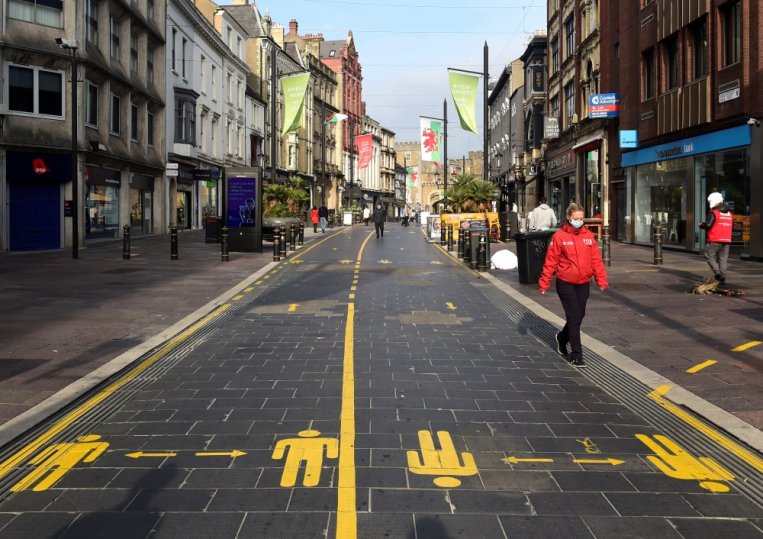CARDIFF, (Reuters) – Wales will impose a two-week “firebreak” lockdown from Friday in which everybody apart from essential workers must stay at home to combat an accelerating second wave of the COVID-19 outbreak.
Welsh First Minister Mark Drakeford said he understood that people were tired of COVID-19 restrictions but that the imposition of rules was essential as critical care units were already full.
“It will have to be sharp and deep in order to have the impact we need,” Drakeford told reporters. “Everyone in Wales will be required to stay at home.”
“If we do not act now, it will continue to accelerate,” he said. “Our critical care units are already full.”
The lockdown will begin on Friday at 1700 GMT and end on Nov. 9. Everybody but essential workers will have to work from home. All non-essential retail, leisure, hospitality and tourist businesses will have to close in Wales. Places of worship will also close.
The United Kingdom recorded 16,982 new daily cases of COVID-19 in the space of 24 hours, according to government data issued on Sunday, up from 16,717 the previous day. Wales recorded 950 cases, up from just 400 at the start of the month.
After a public row with Greater Manchester Mayor Andy Burnham, who accused Prime Minister Boris Johnson of attempting to sacrifice the north of England to save jobs in the south, Housing Secretary Robert Jenrick said a lockdown could be imposed within days.
“We do need to conclude this,” Jenrick said of talks with local leaders, adding that the basis for an agreement was there.
Johnson has threatened to put the area into “Tier 3” – the highest level of restrictions forcing pubs and bars to close and banning different households from mixing indoors – against the will of local leaders if agreement is not possible.
Jenrick said he was hopeful a deal could be struck with Manchester leaders on Monday, with newspapers reporting that tens of millions of pounds were on offer to help businesses cope with the lockdown measures.
“Delay will only make the situation worse, will only put people’s lives at risk, and will only make the economic fallout for the city worse in the long term,” Jenrick told BBC TV.

